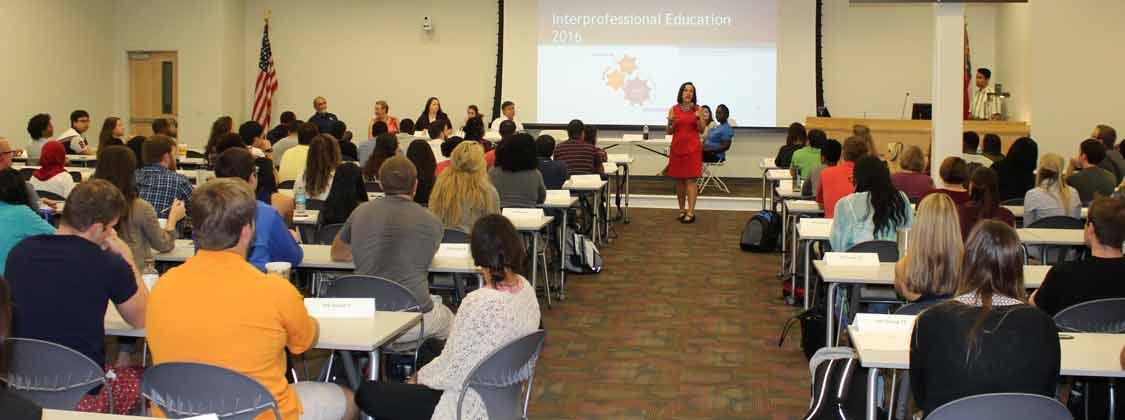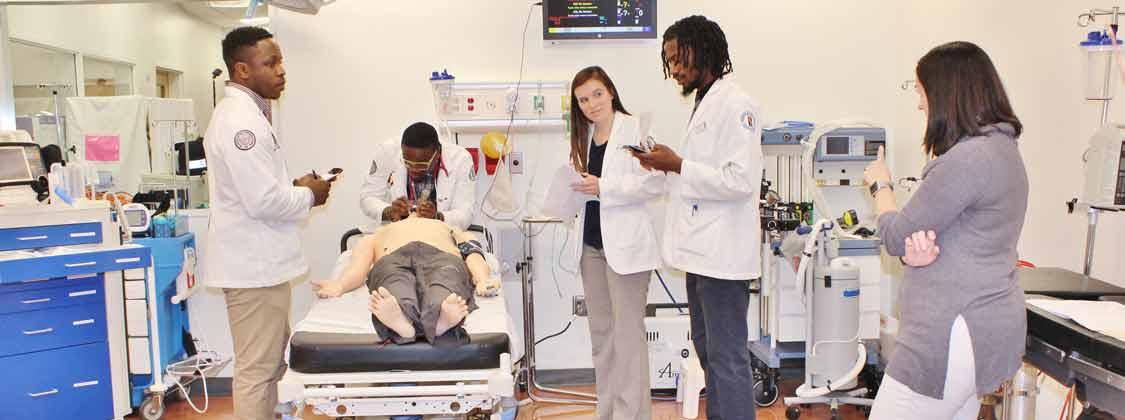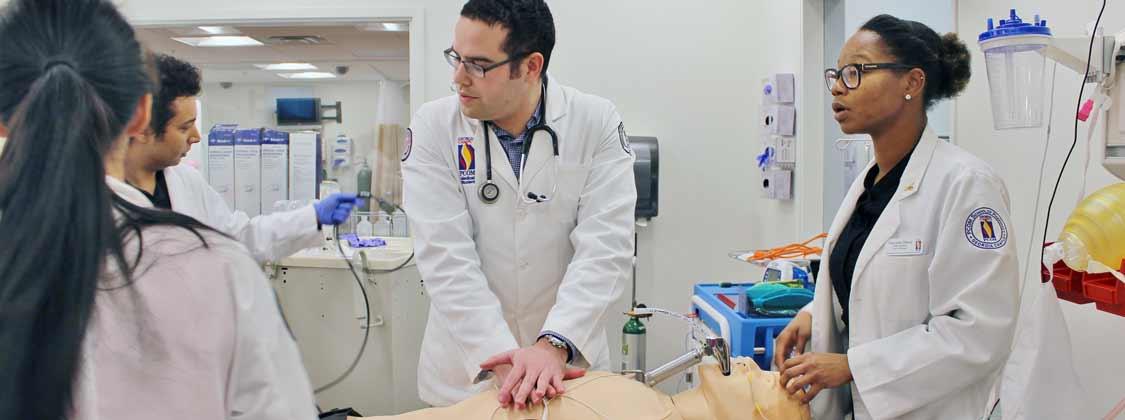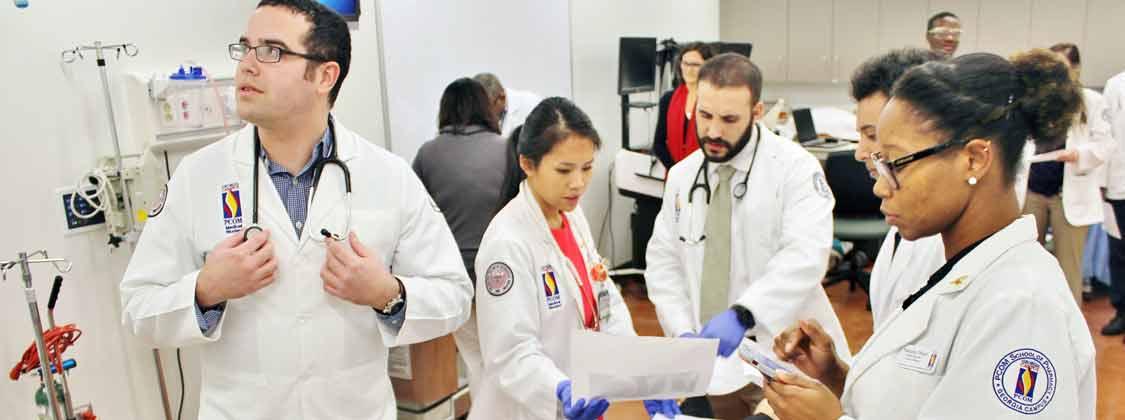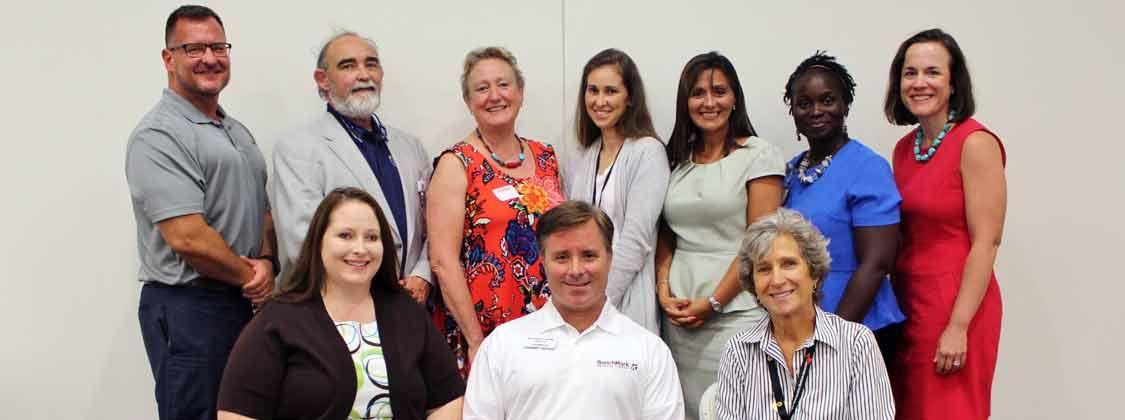INDP 100
In this course, students from various health care professional programs work together
to discuss and investigate approaches to solving health care-related issues as an
interprofessional, collaborative team. The course consists of six, two-hour sessions
spread over a single academic year. Students meet in the lecture hall, as well as
in small groups with a faculty facilitator to discuss issues including medical ethics,
team-work and leadership in health care delivery, cultural/religious competency, medical
errors and prescription and non-prescription drug abuse and opioid addiction.
INDP 200
In this year-long course, second-year osteopathic medical students and pharmacy students
work together in patient simulations and general session on special patient populations
to discuss and deliver appropriate health care. Students meet in small groups to solve
health care–related clinical problems. The course utilizes discussion and simulations
of clinical situations involving an interprofessional and team approach to clinical
problem solving. With assistance from faculty and staff facilitators, students will
work in small groups, to resolve simulated clinical problems and cases. These simulations
and special patient population cases will give students the opportunity to put into
practice skills they learned in INDP - 100 and their respective programs. These skills
include: clinical knowledge, communication skills, teamwork, ethical decision making,
and cultural and religious competency.
INDP 300
In this course, third-year osteopathic medical students and pharmacy students work
together in general session on patient case to discuss and deliver appropriate health
care. Students meet in small groups to solve health care-related clinical problems.
The course utilizes discussion of clinical situations involving an interprofessional
and team approach to clinical problem solving. With assistance from faculty and staff
facilitators, students will work in small groups, to resolve clinical problems and
cases. These cases will give students the opportunity to put into practice skills
they learned in INDP 100G and 200G, and their respective programs. These skills include:
clinical knowledge, communication skills, teamwork, ethical decision making, and cultural
and religious competency.


